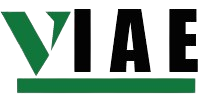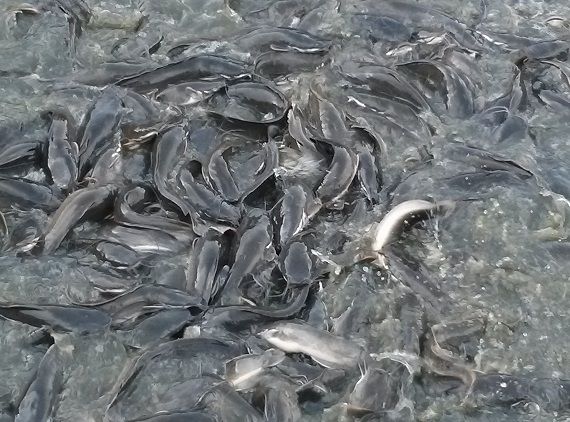Prerequisites
- Basic knowledge of biology
- Knowledge of environmental sciences: having basic notions on the management of aquatic environments and water quality would be a great asset
- Skills in mathematics and statistics
- Knowledge of agronomic sciences: having basic notions in animal husbandry and animal production, either acquired in faculty or in the field, would be a great asset
- Cross-cutting skills: ability to read and write, and a strong motivation for aquaculture
Module 1: Breeding Techniques for Freshwater Species Commonly Produced in Cameroon (60 hours)
- Presentation of different production systems
- Techniques for producing freshwater fish fry
- Techniques for producing freshwater fish
Module 2: Nutrition and Feeding of Aquatic Species (60 hours)
- General Introduction
- Brief historical overview of fish nutrition and feeding
- Nutritional peculiarities of fish (Zoological, Biological, Physiological, Ecological aspects)
- Basics of fish nutrition
- Energy nutrition
- Protein nutrition
- Lipid nutrition
- Carbohydrate nutrition
- Mineral and vitamin nutrition
- Application in fish feeding
- Principle and formulation of feed
- Choice of raw materials and additives
- Antinutritional factors
- Manufacturing of compound feeds
Module 3: Marketing of Aquaculture Products (60 hours)
- Study the fishery sector market
- Marketing: a value creation lever
- The market
- Market studies
- Consumer behavior
- Using the levers of the marketing mix
- Product policy
- Pricing policy
- Distribution and distribution policy
- Fundamentals of communication
- Building new relationships with customers
- Relationship marketing and loyalty policies
- Social media marketing
- Defining your marketing strategy
- Marketing strategy, plan, and organization
- Segmentation and targeting
- Positioning
- Adapting to sectoral and multinational specificities (environmental)
- Service marketing
- B2B marketing
- Multinational marketing
- E-marketing
Module 4: Aquaculture Engineering (60 hours)
- Presentation of different types of aquaculture infrastructure
- Criteria for choosing aquaculture sites
- Construction standards for aquaculture infrastructure
- Stages of constructing aquaculture infrastructure
Module 5: Entrepreneurship, Business Creation, and Management (45 hours)
- Entrepreneurship
- Entrepreneurial phenomenon: Definitions and Forms
- The actor of entrepreneurship: The entrepreneur
- The driving force of entrepreneurship: innovation
- The Business Plan
- Generalities and reminders of the notion of companies and business management issues
- Business management: Planning, Organization, Direction, Control
- Decision-making and types of decisions
- Decision-making process and decision support tools
Module 6: Biological Basics in Aquaculture (45 hours)
- Generalities on aquaculture: Historical overview of aquaculture; Different forms of aquaculture; Extensive aquaculture; Semi-intensive aquaculture; Intensive aquaculture
- Status of aquaculture; Main species farmed
- Mode of reproduction, determinism, and sex differentiation
- Diversity of reproductive modes: Gynogenesis; Hermaphroditism; Gonochoric species
- Male reproductive system
- Female reproductive system
- Secondary sexual characteristics
- Sex determination: Sex chromosomes; Autosomes
- Influence of environmental factors
- Sexual differentiation
- Maturation and reproduction cycle
- Effect of environmental factors
- Modification of reproductive strategy in captivity
- Reproduction endocrinology: Hypothalamus; Hypothalamus-pituitary axis feedback mechanism
- Gonad; Gonadotropins; Sexual steroids: Estradiol; Final oocyte maturation; 11-Ketotestosterone; Ovulation; Reserve mobilization for spawning, fecundity, and egg size
- Effect of environmental and social factors on spawning: Environmental factors: Spawning substrate; Temperature; Photoperiod; Sexual display and spawning activity; Pheromones
- Embryonic and larval development, metamorphosis: Fertilization; Embryonic development: Embryogenesis
- Effect of temperature
- Effect of other variables
- Hatching: Morphology; Hatching stimuli and enzymes; Post-hatching development; Initial feeding – larval period; Metamorphosis; Cannibalism
- Control of gamete quality, sexual maturation, and spawning in captivity: Control of sexual maturity
- Control of gamete quality: Nutritional status of broodstock
- Broodstock maintenance conditions
- Microorganism contamination
- Control of ovulation and spawning: Induction of spawning in the presence of substrate
- Demographic factors
- Hormonal control of ovulation, spawning, and spermiation
- Spontaneous spawning in captivity; Artificial fertilization
- Gamete conservation
- Fish stress: Response to stressors (Endocrine response (primary response); Secondary response to stressors; Tertiary stress responses)
- Stressors in aquaculture (Acute stressors; Chronic stressors)
Module 7: Feeding and Nutrition of Aquatic Species (45 hours)
- Nutritional peculiarities of fish (Zoological, Biological, Physiological, Ecological aspects)
- Digestive physiology and nutrient digestibility: Anatomy and physiology of the digestive tract and its impact on diet; Protein, lipid, and carbohydrate digestibility
- Energy Nutrition: Catabolism of amino acids, lipids, and carbohydrates; Fate of dietary energy
- Protein Nutrition: Protein and essential amino acid requirements; Nutritional quality of proteins
- Lipid Nutrition: Essential fatty acid requirements and meeting needs
- Carbohydrate Nutrition: Interest and limits of the energetic role of carbohydrates
- Mineral and vitamin nutrition: Vitamin requirements and dietary standards; Peculiarity of fish mineral nutrition
- Principle and formulation of feed: Typology of fish feed (Complementary feed; Industrial or commercial feed); Feed formulation techniques (Pearson square, Algebraic method)
- Choice of raw materials and additives: Animal origin raw materials: Typology, advantages, and disadvantages; Plant origin raw materials: Typology, advantages, and disadvantages; Additives: Attractants and proper additives (antioxidants, stabilizers, preservatives, binders)
- Antinutritional factors: Antinutritional factors of plant and animal products; Incidence and control measures
- Manufacturing of compound feeds: Common operations in feed manufacturing: Grinding, dosing or weighing, mixing, feed shaping, cooking, extrusion; Complementary operations: drying, crumbling, coating
Module 8: Project Design, Management, and Evaluation (45 hours)
- Design, implementation, monitoring, and evaluation of an aquaculture project
- Feasibility study of a project
- Presentation of livestock projects
- Writing a business plan
- Development plan
- Project management and conduct
- Establishing a business plan
Module 9: Good Management Practices and Management of an Aquaculture Farm (45 hours)
- Quality management
- Performance management
This training program covers the main theoretical and practical aspects of aquaculture, allowing participants to acquire a comprehensive understanding and solid skills in this field. However, the modules can be adapted based on the specific needs of learners or training objectives.
Prerequisites
- Basic knowledge of biology
- Knowledge of environmental sciences: having basic notions on the management of aquatic environments and water quality would be a great asset
- Skills in mathematics and statistics
- Knowledge of agronomic sciences: having basic notions in animal husbandry and animal production, either acquired in faculty or in the field, would be a great asset
- Cross-cutting skills: ability to read and write, and a strong motivation for aquaculture
Module 1: Breeding Techniques for Freshwater Species Commonly Produced in Cameroon (60 hours)
- Presentation of different production systems
- Techniques for producing freshwater fish fry
- Techniques for producing freshwater fish
Module 2: Nutrition and Feeding of Aquatic Species (60 hours)
- General Introduction
- Brief historical overview of fish nutrition and feeding
- Nutritional peculiarities of fish (Zoological, Biological, Physiological, Ecological aspects)
- Basics of fish nutrition
- Energy nutrition
- Protein nutrition
- Lipid nutrition
- Carbohydrate nutrition
- Mineral and vitamin nutrition
- Application in fish feeding
- Principle and formulation of feed
- Choice of raw materials and additives
- Antinutritional factors
- Manufacturing of compound feeds
Module 3: Marketing of Aquaculture Products (60 hours)
- Study the fishery sector market
- Marketing: a value creation lever
- The market
- Market studies
- Consumer behavior
- Using the levers of the marketing mix
- Product policy
- Pricing policy
- Distribution and distribution policy
- Fundamentals of communication
- Building new relationships with customers
- Relationship marketing and loyalty policies
- Social media marketing
- Defining your marketing strategy
- Marketing strategy, plan, and organization
- Segmentation and targeting
- Positioning
- Adapting to sectoral and multinational specificities (environmental)
- Service marketing
- B2B marketing
- Multinational marketing
- E-marketing
Module 4: Aquaculture Engineering (60 hours)
- Presentation of different types of aquaculture infrastructure
- Criteria for choosing aquaculture sites
- Construction standards for aquaculture infrastructure
- Stages of constructing aquaculture infrastructure
Module 5: Entrepreneurship, Business Creation, and Management (45 hours)
- Entrepreneurship
- Entrepreneurial phenomenon: Definitions and Forms
- The actor of entrepreneurship: The entrepreneur
- The driving force of entrepreneurship: innovation
- The Business Plan
- Generalities and reminders of the notion of companies and business management issues
- Business management: Planning, Organization, Direction, Control
- Decision-making and types of decisions
- Decision-making process and decision support tools
Module 6: Biological Basics in Aquaculture (45 hours)
- Generalities on aquaculture: Historical overview of aquaculture; Different forms of aquaculture; Extensive aquaculture; Semi-intensive aquaculture; Intensive aquaculture
- Status of aquaculture; Main species farmed
- Mode of reproduction, determinism, and sex differentiation
- Diversity of reproductive modes: Gynogenesis; Hermaphroditism; Gonochoric species
- Male reproductive system
- Female reproductive system
- Secondary sexual characteristics
- Sex determination: Sex chromosomes; Autosomes
- Influence of environmental factors
- Sexual differentiation
- Maturation and reproduction cycle
- Effect of environmental factors
- Modification of reproductive strategy in captivity
- Reproduction endocrinology: Hypothalamus; Hypothalamus-pituitary axis feedback mechanism
- Gonad; Gonadotropins; Sexual steroids: Estradiol; Final oocyte maturation; 11-Ketotestosterone; Ovulation; Reserve mobilization for spawning, fecundity, and egg size
- Effect of environmental and social factors on spawning: Environmental factors: Spawning substrate; Temperature; Photoperiod; Sexual display and spawning activity; Pheromones
- Embryonic and larval development, metamorphosis: Fertilization; Embryonic development: Embryogenesis
- Effect of temperature
- Effect of other variables
- Hatching: Morphology; Hatching stimuli and enzymes; Post-hatching development; Initial feeding – larval period; Metamorphosis; Cannibalism
- Control of gamete quality, sexual maturation, and spawning in captivity: Control of sexual maturity
- Control of gamete quality: Nutritional status of broodstock
- Broodstock maintenance conditions
- Microorganism contamination
- Control of ovulation and spawning: Induction of spawning in the presence of substrate
- Demographic factors
- Hormonal control of ovulation, spawning, and spermiation
- Spontaneous spawning in captivity; Artificial fertilization
- Gamete conservation
- Fish stress: Response to stressors (Endocrine response (primary response); Secondary response to stressors; Tertiary stress responses)
- Stressors in aquaculture (Acute stressors; Chronic stressors)
Module 7: Feeding and Nutrition of Aquatic Species (45 hours)
- Nutritional peculiarities of fish (Zoological, Biological, Physiological, Ecological aspects)
- Digestive physiology and nutrient digestibility: Anatomy and physiology of the digestive tract and its impact on diet; Protein, lipid, and carbohydrate digestibility
- Energy Nutrition: Catabolism of amino acids, lipids, and carbohydrates; Fate of dietary energy
- Protein Nutrition: Protein and essential amino acid requirements; Nutritional quality of proteins
- Lipid Nutrition: Essential fatty acid requirements and meeting needs
- Carbohydrate Nutrition: Interest and limits of the energetic role of carbohydrates
- Mineral and vitamin nutrition: Vitamin requirements and dietary standards; Peculiarity of fish mineral nutrition
- Principle and formulation of feed: Typology of fish feed (Complementary feed; Industrial or commercial feed); Feed formulation techniques (Pearson square, Algebraic method)
- Choice of raw materials and additives: Animal origin raw materials: Typology, advantages, and disadvantages; Plant origin raw materials: Typology, advantages, and disadvantages; Additives: Attractants and proper additives (antioxidants, stabilizers, preservatives, binders)
- Antinutritional factors: Antinutritional factors of plant and animal products; Incidence and control measures
- Manufacturing of compound feeds: Common operations in feed manufacturing: Grinding, dosing or weighing, mixing, feed shaping, cooking, extrusion; Complementary operations: drying, crumbling, coating
Module 8: Project Design, Management, and Evaluation (45 hours)
- Design, implementation, monitoring, and evaluation of an aquaculture project
- Feasibility study of a project
- Presentation of livestock projects
- Writing a business plan
- Development plan
- Project management and conduct
- Establishing a business plan
Module 9: Good Management Practices and Management of an Aquaculture Farm (45 hours)
- Quality management
- Performance management
This training program covers the main theoretical and practical aspects of aquaculture, allowing participants to acquire a comprehensive understanding and solid skills in this field. However, the modules can be adapted based on the specific needs of learners or training objectives.

